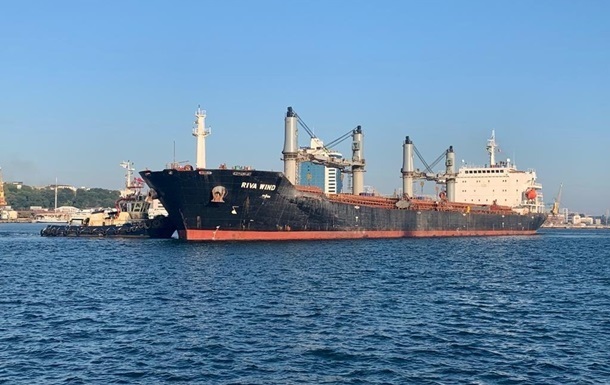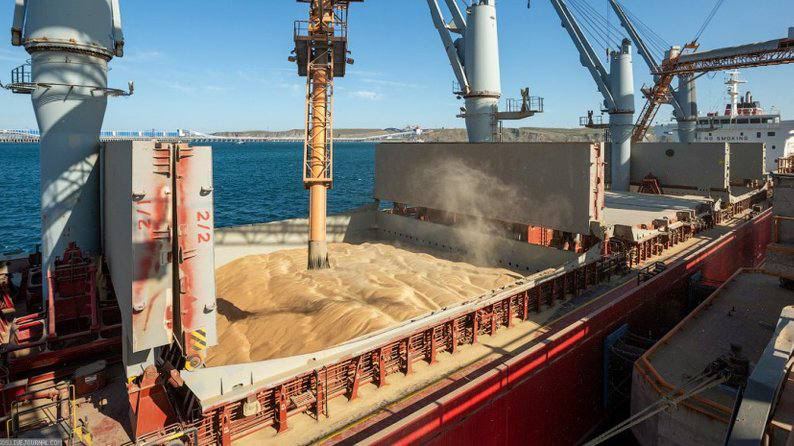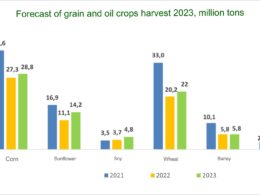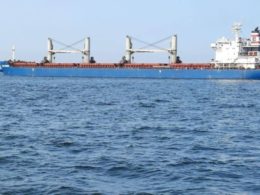Since August 2023, Ukraine has exported more than 36 million tons of cargo through its maritime corridor, according to the Ministry of Development of Communities, Territories, and Infrastructure of Ukraine. This milestone highlights the significant role of the corridor in maintaining the country's export capabilities amidst ongoing challenges.
The record-breaking shipment of 195,700 tons was carried on the Panama-flagged vessel CAPTAIN LEONIDAS from the "Pivdennyi" port, making it the largest ship to enter Ukrainian ports since the start of Russia's full-scale invasion. The vessel measures 300 meters in length, 50 meters in width, and has a deadweight of over 203,000 tons.
To date, the Ukrainian maritime corridor has seen the passage of 1,286 vessels, exporting 25 million tons of agricultural products to countries in Asia, Africa, and Europe. An additional 135 ships are expected to export 4 million tons of cargo from the ports of Odesa, Chornomorsk, and Pivdennyi.
The ministry is making concerted efforts to ensure stable export movement by sea and aims to reach pre-2022 levels. This development comes after Ukraine announced in January that it had reached pre-war export volumes by sea, thanks to the functioning of the Ukrainian maritime corridor.
The corridor's success comes amid a backdrop of Russian attempts to blockade Ukraine's Black Sea ports, which began with the invasion in February 2022. Despite Russia's withdrawal from the UN- and Türkiye-brokered grain deal and threats to consider all vessels as potential military targets, Ukraine established a temporary shipping route in July 2023 to maintain grain shipments. This route, adjacent to Romania and Bulgaria along the western Black Sea coast, has allowed civilian ships to transit despite Russian attacks on port infrastructure. This corridor has been instrumental in ensuring the continued export of Ukrainian agricultural products. Despite intensified Russian attacks on Ukrainian grain and port infrastructure, the corridor has remained operational, with almost 15 million tons of cargo exported in just five months, underscoring its significance for both Ukraine's economy and global food security.
The sea export is especially important due to the blockade of the western Ukrainian border by Polish farmers, who oppose Ukrainian tariff-free food imports amid Ukraine's continuous integration into the EU market. The Polish blockade at the Ukraine-Poland border has caused significant disruptions in trade and economic losses for both countries. Initiated by Polish transport workers and backed by the anti-Ukrainian "Confederation" party, the blockade led to the complete or partial shutdown of three key border checkpoints. This has resulted in approximately 20,000 vehicles being stranded at the border, halting their movements and impacting various sectors of the economy.
As of March 2024, over 1,000 civilian ships have successfully navigated Ukraine's "grain corridor" in the Black Sea, defying Russia's blockade and attempts to undermine international confidence in the corridor. This achievement has enabled Ukraine to resume maritime exports of agricultural commodities from its Black Sea ports, despite Russia's withdrawal from the UN- and Türkiye-brokered grain deal.
Ukraine's ability to maintain this maritime corridor is crucial for global food security and the country's economic resilience.
Related:
- Over 1,000 civilian ships defy Russia, transit Ukraine's Black Sea "grain corridor"
- Zelenskyy, Erdogan discuss returning Ukrainian POWs, Black Sea security in phone call
- Ukraine says alternative Black Sea export corridor is working despite Russia's attack on civilian vessel





